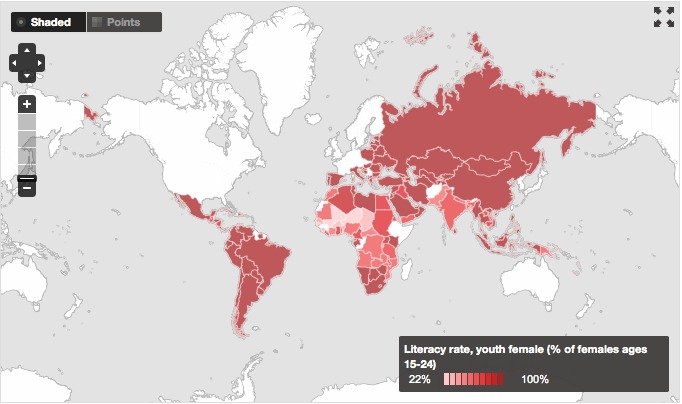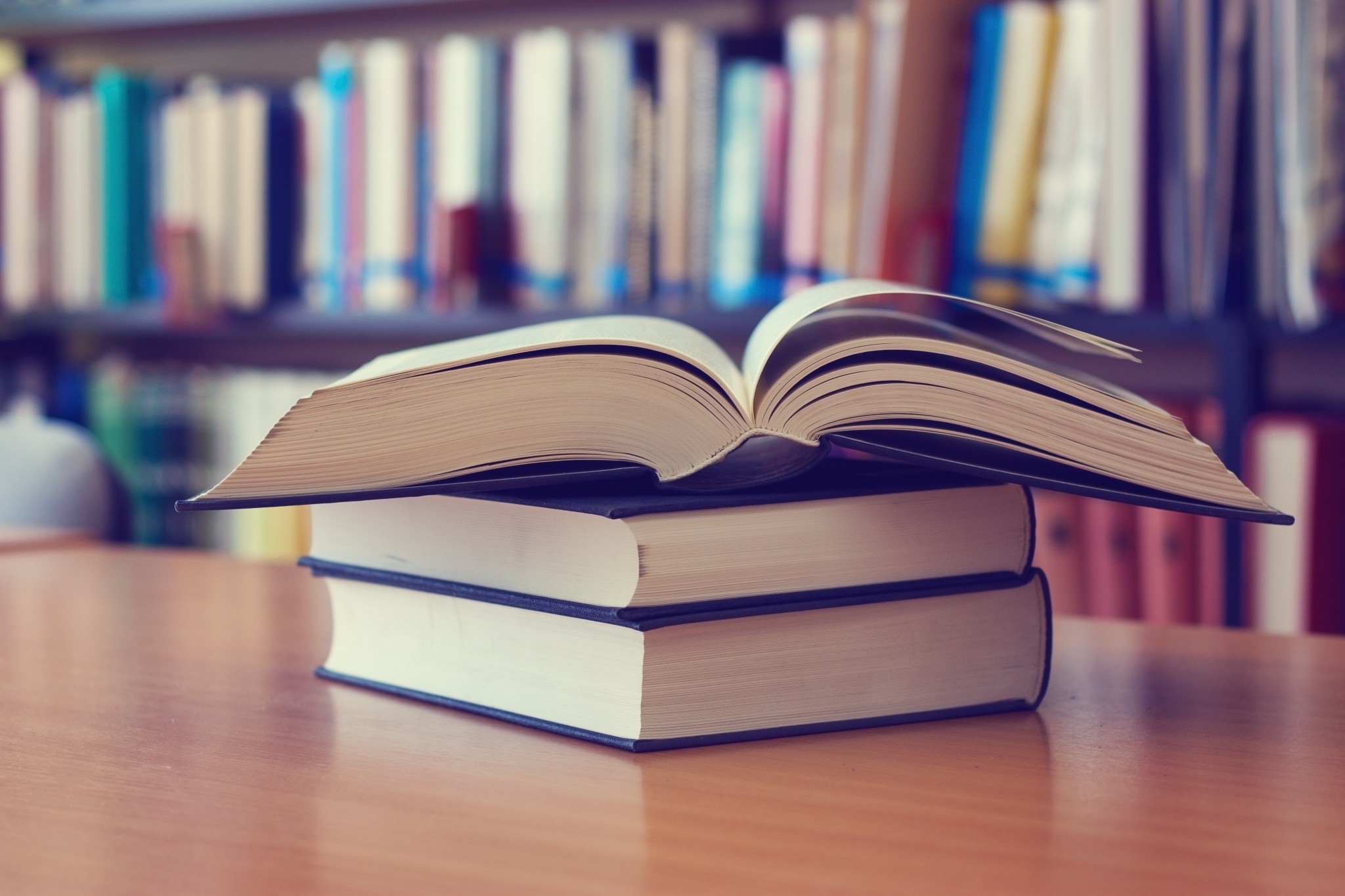For millennia, men have tried to stop women from learning to read.
Before we look back, I wanted to share these World Bank maps that let us see the status of female literacy, 2009-2013
Female Literacy in Developing Nations:

Worldwide ratios of female to male literacy:

But, we need not conclude that limiting female literacy is a developing nation phenomenon.
Looking back at the United States, even in colonial Massachusetts, the law required boys to attend school while girls were primarily educated at home. Consequently, while John Adams attended school in Braintree and entered Harvard when he was 15, his future bride Abigail was taught by her father. Passionate about books, the Reverend William Smith encouraged his daughter to read Shakespeare and Pope and the classics. From a friend of John’s, Abigail Adams learned French. Probably by herself, she learned to write and spell and punctuate, or as she said in 1803, “As to points and commas, I was not taught them in my youth, and I always intend my meaning shall be so obvious as that my readers shall know where they ought to stop.”
Belinda Jack in The Woman Reader tells us that men worried that if women could read, they could think independently. During the 19th century, some people thought the “hysteria” that woman seemed susceptible to could be precipitated by a book. As one London physician suggested, “If a novel seemed to worsen a woman’s condition, it should be taken away and replaced by ‘a book upon some practical subject; such, for instance, as beekeeping.'”
In her introduction, Jack points out that the prejudice against woman readers dates back to the ancient world. One Roman historian connects a noblewoman being learned to her masculinity and promiscuity. Continuing chronologically, Jack points out that hundreds of years later when many more women were reading, they were given books about proper conduct.
Our bottom line: Because female literacy has always meant more power, it was one of the most crucial gender issues in the past and remains especially relevant in developing countries today.Thinking of future posts, I hope you will share your comments about the positive externalities that spillover from educated women.
Gender Issues: Literate Women

Elaine Schwartz
Elaine Schwartz has spent her career sharing the interesting side of economics. At the Kent Place School in Summit New Jersey, she was honored with an Endowed Chair in Economics. Just published, her newest book, Degree in a Book: Economics (Arcturus 2023), gives readers a lighthearted look at what definitely is not “the dismal science.” She has also written and updated Econ 101 ½ (Avon Books/Harper Collins 1995) and Economics: Our American Economy (Addison Wesley 1994). In addition, Elaine has articles in the Encyclopedia of New Jersey (Rutgers University Press) and was a featured teacher in the Annenberg/CPB video project “The Economics Classroom.” Beyond the classroom, she has presented Econ 101 ½ talks and led workshops for the Foundation for Teaching Economics, the National Council on Economic Education and for the Concord Coalition. Online for more than a decade. econlife has had one million+ visits.





